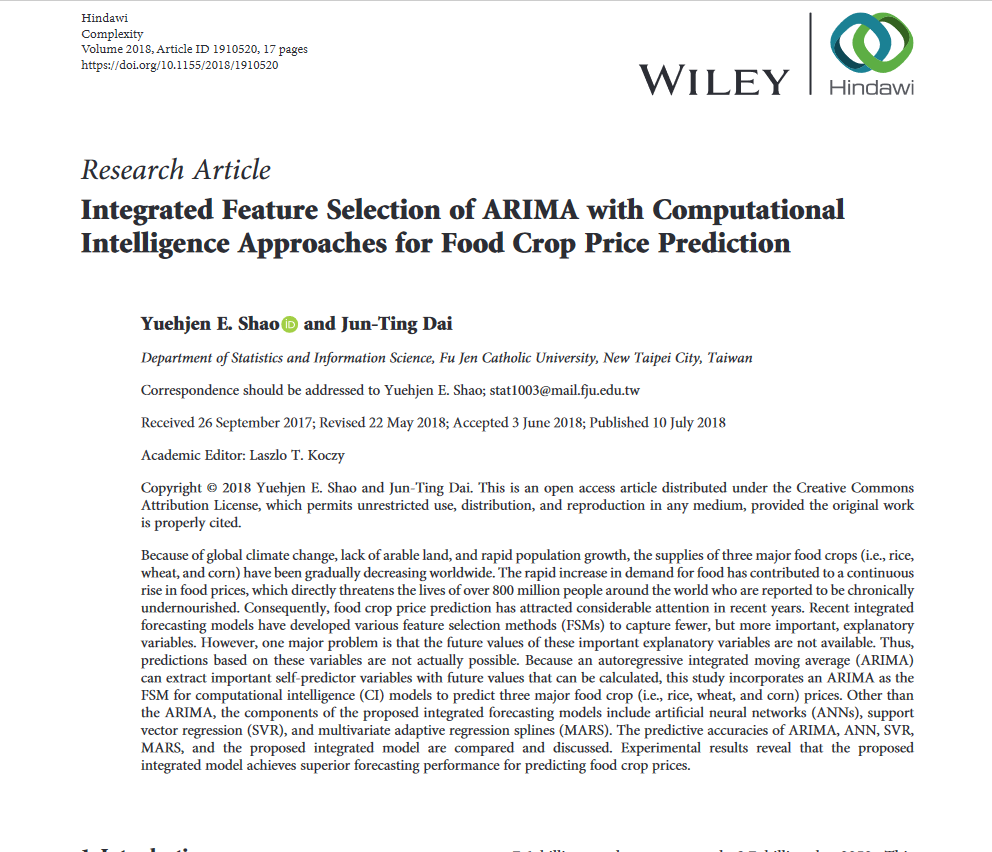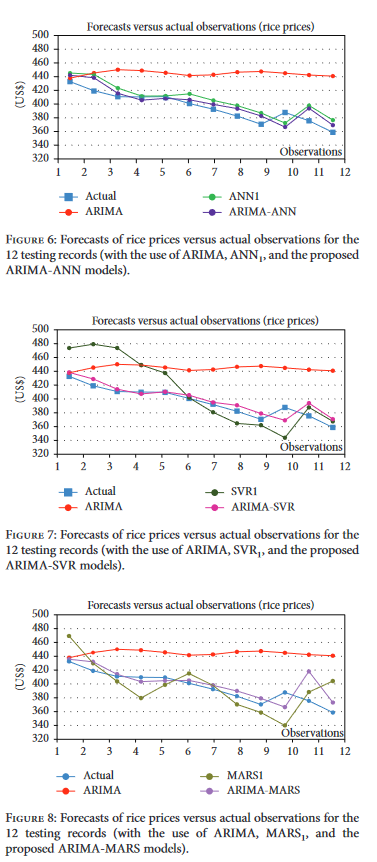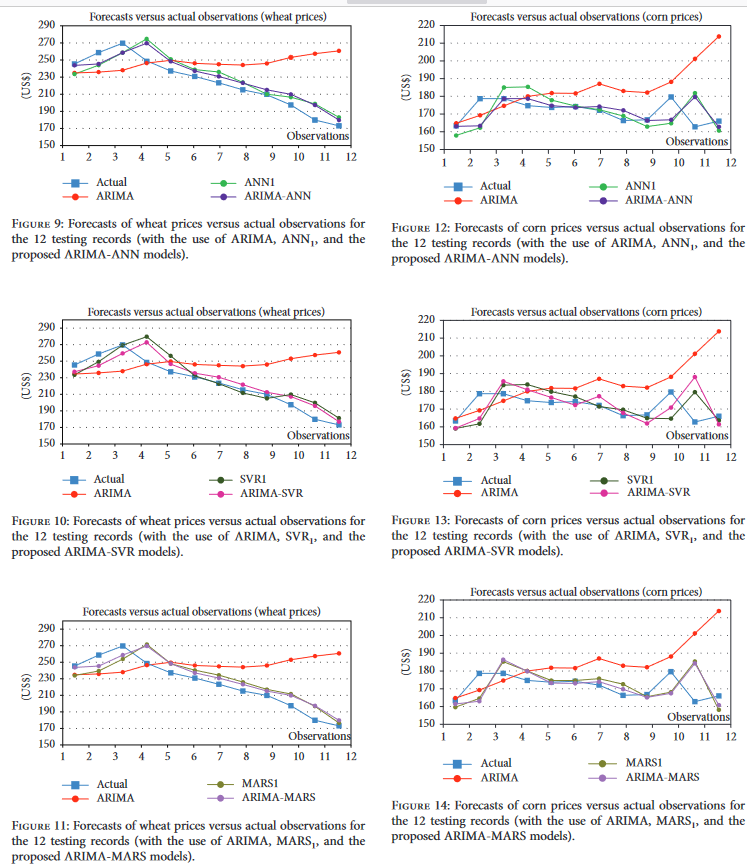Featured Scientist

Author published in "COMPLEXITY" affiliate to
Yuehjen E. Shao
Department of Stastistics and Information Science,
Fu Jen Catholic University, New Taipei, Taiwan.
Article published in
"Journal of COMPLEXITY", Volume 2018, Article ID 1910520."
Integrated Feature Selection of ARIMA with Computational Intelligence Approaches for Food Crop Price Prediction
Because of global climate change, lack of arable land, and rapid population growth, the supplies of three major food crops (i.e., rice, wheat, and corn) have been gradually decreasing worldwide. The rapid increase in demand for food has contributed to a continuous rise in food prices, which directly threatens the lives of over 800 million people around the world who are reported to be chronically undernourished. Consequently, food crop price prediction has attracted considerable attention in recent years. Recent integrated forecasting models have developed various feature selection methods (FSMs) to capture fewer, but more important, explanatory variables. However, one major problem is that the future values of these important explanatory variables are not available. Thus, predictions based on these variables are not actually possible. Because an autoregressive integrated moving average (ARIMA) can extract important self-predictor variables with future values that can be calculated, this study incorporates an ARIMA as the FSM for computational intelligence (CI) models to predict three major food crop (i.e., rice, wheat, and corn) prices. Other than the ARIMA, the components of the proposed integrated forecasting models include artificial neural networks (ANNs), support vector regression (SVR), and multivariate adaptive regression splines (MARS). The predictive accuracies of ARIMA, ANN, SVR, MARS, and the proposed integrated model are compared and discussed. Experimental results reveal that the proposed integrated model achieves superior forecasting performance for predicting food crop prices. [Full article]

